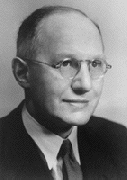|
|
||||||||||||||||||||||||
 |
Featured person
Recently added |
William John Ashcroft (1840 - 1918): |
||||||||||||||||||||||
William John Ashcroft was born in 1840 in Rhode Island, USA. Ashcroft’s parents had emigrated from Belfast and he always wanted to live there. After a successful career as singer, comedian and dancer on the stage in America, he married the English actress Kitty Brooks and moved to England where his career flourished.
According to Irish music hall historians Eugene Watters and Matthew Murtagh - "The image of the Irish in popular entertainment was in greater need of revision in Britain than it was in America. Music hall audiences were evidently fascinated by Ashcroft's self-confident, ‘elevated’ Irish Yank, so different from the typical English stage Irishman or the ape-like Paddies in the cartoons in Punch. Ashcroft's Irish Song-and-Dance characterisations from the raw New World went well in London, and he played leading Halls to crowded Houses. In 1876, he had a huge success with 'Muldoon the Solid Man'."
Ashcroft became famous for his rendition of this song, which was a version of a New York hit from the 1874 musical Who Owns the Clothesline.
| Born: | 1840 |
| Died: | January 1918 |
| Ulster History Circle |
| References: McFetridge, Stewart, Overture & Beginners Please: A peek at Belfast’s old music halls and theatres (Abbey Publications,2004), p55. Watters, Eugene and Murtagh Matthew, Infinite Variety: Dan Lowrey's Music Hall (Dublin: Gill & Macmillan, 1975). Joyce, James, Finnegan’s Wake (New York: Viking, 1959), Penguin edition, p94. McDowell, Jim. Beyond the Footlights. A History of Belfast Music Halls and Early Theatre. Nonsuch publishing, Dublin (2007). p34 |


Home | Our Policies | Plaques | Browse | Search | Sponsors | Links | Help | Contact
Privacy & Disclaimer | Cookie Policy | Site Map | Website Design By K-Point
© 2024 Ulster History Circle









